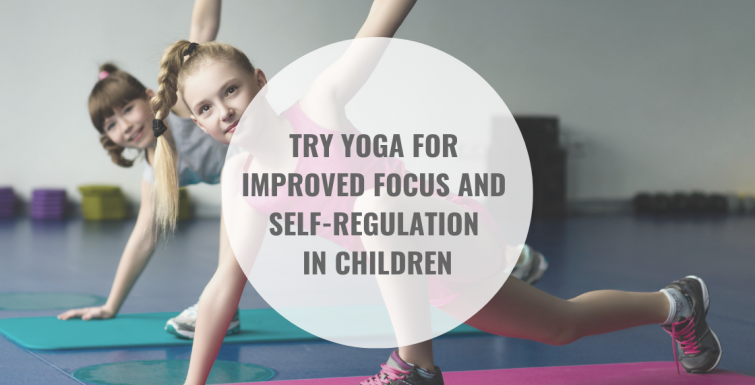Guest Blogger Jana Maich, Occupational Therapist
Working as an occupational therapist in pediatrics, I am always on the lookout for simple strategies I can offer to parents and classroom teachers that can be easily be implemented. One of the main difficulties expressed to me by concerned parents or teachers is that a child is having difficulty controlling their activity level, focusing or attending, or controlling emotional outbursts. In other words, a child is having difficulty self-regulating.
What does this mean? Self-regulation is our ability to monitor and control our body’s arousal level (in other words, our level of alertness) in order to remain in an optimal state that is appropriate for the current situation. Self-regulation is critical to being able to attend, focus, and learn (1). When our body’s arousal level gets too “high,” we may feel anxious, nervous, or stressed. When our body’s arousal level gets too “low,” we may feel lethargic, sluggish, or tired. Often unconsciously, adults participate in a variety of self-regulation strategies to remain in an optimum state throughout our day. For example, in a boring meeting where your level of alertness may be “low,” you may tap your pencil, shift in your chair, apply pressure to your mouth or chin with your hands, or drink water in order to bring your arousal level up. After an intense day of work when you may be feeling too “high,” you may take a bath, read a book, or participate in some other sort of relaxation promoting activity (1). There are many ways to regulate ourselves, and just as adults require self-regulation strategies, children do too. Yet, in today’s changing and fast-passed society, children are more stressed than ever before. School demands have increased, daily schedules are jam-packed, and they don’t have as much play or “down” time as kids once did. Unfortunately, unstructured play activities that are critical to a child’s innate self-regulation needs have been replaced by TV and electronics. All of this has ultimately stressed our young generations, resulting in disrupted self-regulation.
Yoga is one activity that has become recognized as a suitable and helpful regulation activity – for people of all ages. (2). For children, yoga offers many potential benefits – both physically and emotionally. Benefits include improved postural control, immune functioning, body awareness, strength and flexibility, emotional control, attention, sleep, and a decrease in stress and anxiety. Yoga is a simple strategy with a variety of exercises that can be completed anywhere including at home, when on vacation, while lying in bed, or as a group in the classroom. Depending on the current needs of the child, there are various poses and breathing exercises designed to bring arousal levels up or down as appropriate. Over time, children begin to develop an enhanced mind-body connection and an improved ability to monitor and manage their own levels of arousal (2).
In my personal experience, using simple breathing strategies and poses in my practice, has demonstrated firsthand how yoga can positively affect children with both physical and mental disabilities including autism, ADHD, emotional difficulties, mental health conditions, and motor coordination difficulties. In older children, learning how to control their own emotions and arousal levels empowers them and creates both self-esteem and self-control.
So what are you waiting for? Search out local yoga programs for you or your child. Try these links: www.yoga4classrooms.com or www.childlightyoga.com. Consider that many places will let you try a class without a commitment, or offer great starter incentives. Or, buy a CD or DVD, or check out some poses and breathing exercises via online videos to see if this might work for you or your family.
Originally posted July 2014
(1) Williams, M., & Shellenberger, S. (2012). “How does your engine run?” A leader’s guide to the Alert Program for self-regulation.” Albuquerque, NM: Therapy Works
(2) Flynn, L. (2010). Yoga 4 classrooms. Tools for learning, lessons for life. Dover, NH: Yoga 4 Classrooms.

